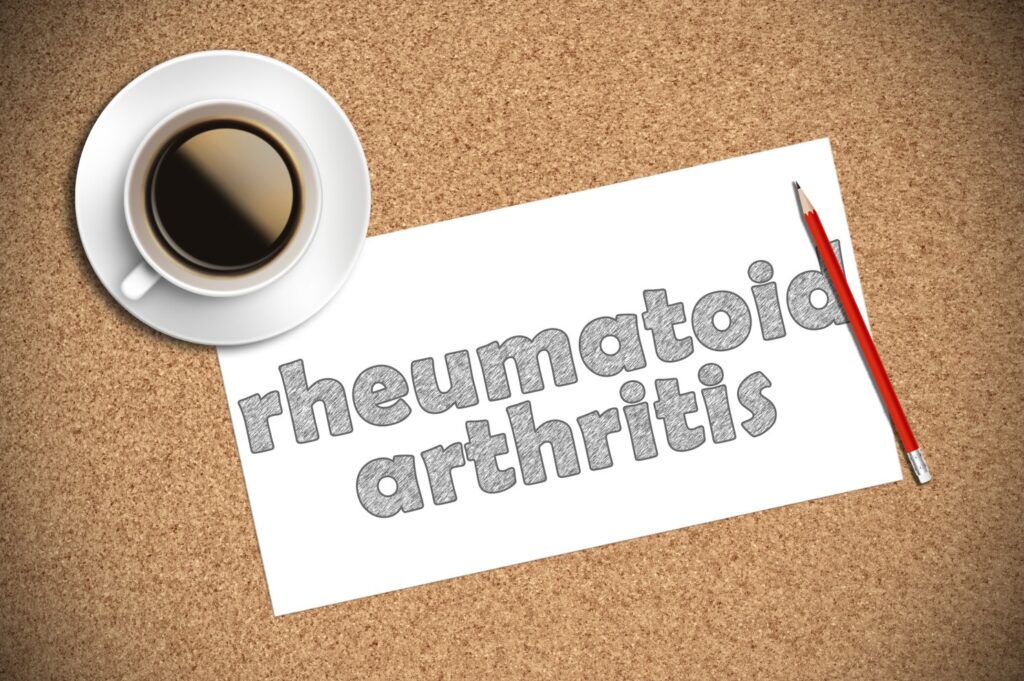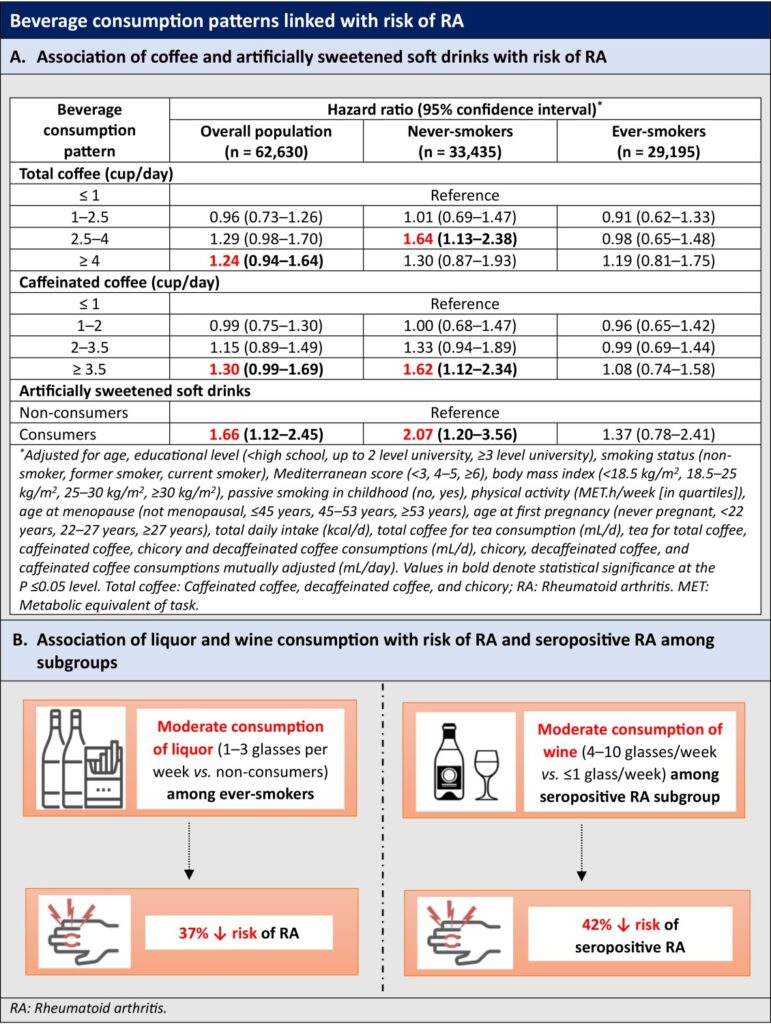
A study by Ascione S et al., recently published in the journal “Rheumatology”, reported a high risk of rheumatoid arthritis (RA) with consumption of coffee (mostly caffeinated coffee) and artificially sweetened soft drinks, specifically in subjects who never smoked. Moreover, there was a reduced risk of RA with moderate consumption of liquor among smokers. Consumption of tea, alcohol, and sugar-sweetened soft drinks was not associated with risk of RA.
This large, prospective, cohort study including 62,630 women (mean age: 62.5 years) was conducted to investigate the association of specific beverage consumption (coffee, soft drinks, tea, and alcohol) with the risk of RA over a follow-up period of the E3N study (a large prospective cohort study including 98,995 women since 1990). The follow-up duration of the study was 21 years.A validated food-frequency questionnaire was used to evaluate food and beverage consumption. A Cox proportional hazards model was used to assess hazard ratio (HR) and 95% confidence interval (CI). Potential interactions between smoking status and beverage consumption were investigated as smoking is a major risk factor for RA; stratified analyses were conducted as per smoking status (ever-smoker or never-smoker). Sensitivity analyses were conducted in the subgroup of seropositive patients given that the auto-antibody status is a major parameter while analyzing environmental factors related to RA risk.
The primary study results are summarized below:
- Among the study population, 481 women developed RA (mean age at RA diagnosis: 65.2 years). Among the 35.6% RA cases with known antibody status, 31.8% were seropositive.
- Increased consumption of total coffee (caffeinated coffee, decaffeinated coffee, and chicory) showed subsequently higher risk of RA (Ptrend = 0.04), particularly among never-smokers (Graphic A).
- This association was slightly stronger for caffeinated coffee consumption, with a clear increased risk of RA with increased coffee consumption, both in the overall population (Ptrend = 0.04) and never-smokers (Ptrend = 0.005).
- An increased risk of RA was noted with the consumption of artificially sweetened soft drinks, both in the overall population and never-smokers (Graphic A).
- There was no risk of RA with the consumption of tea, sugar-sweetened soft drinks, and alcohol.
- Among ever-smokers, there was a reduced risk of RA with moderate liquor consumption (1–3 glasses/week vs. non-consumers; adjusted HR [aHR]: 0.63, 95% CI 0.43–0.91), while among seropositive RA subgroup, there was a reduced risk of seropositive RA with moderate wine consumption (4–10 glasses/week vs. ≤1 glass/week; aHR: 0.58, 95% CI 0.35–0.97) (Graphic B).

Clinical implications
- Coffee is a commonly consumed beverage all over the world. Higher consumption of coffee is consistently associated with an increased risk of RA; thus, it is advisable to limit coffee consumption to prevent the onset of RA, especially in individuals at risk of RA such as relatives of patients with RA.
- This was the first study to report an association between the consumption of artificially sweetened soft drinks and RA risk.
- Further investigations into the findings of this study may lead to the development of novel mechanistic hypotheses and simple preventive measures for RA.
(Source: Ascione S, Barde F, Artaud F, Nguyen Y, Macdonald C, Mariette X, Boutron-Ruault MC, Salliot C, Seror R. Association between beverage consumption and risk of rheumatoid arthritis: A prospective study from the French E3N Cohort. Rheumatology (Oxford). 2023;62(5):1814-23.)
